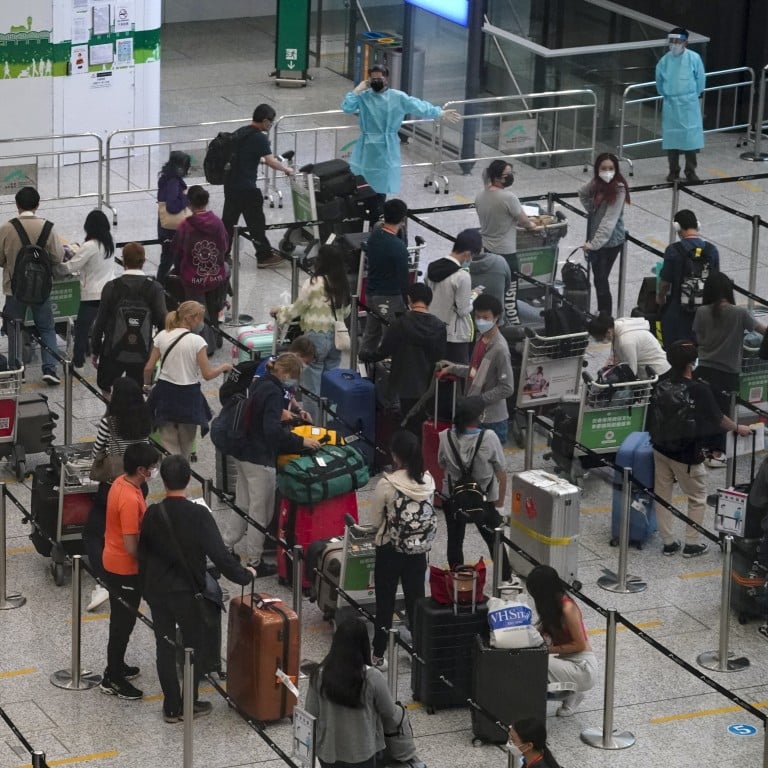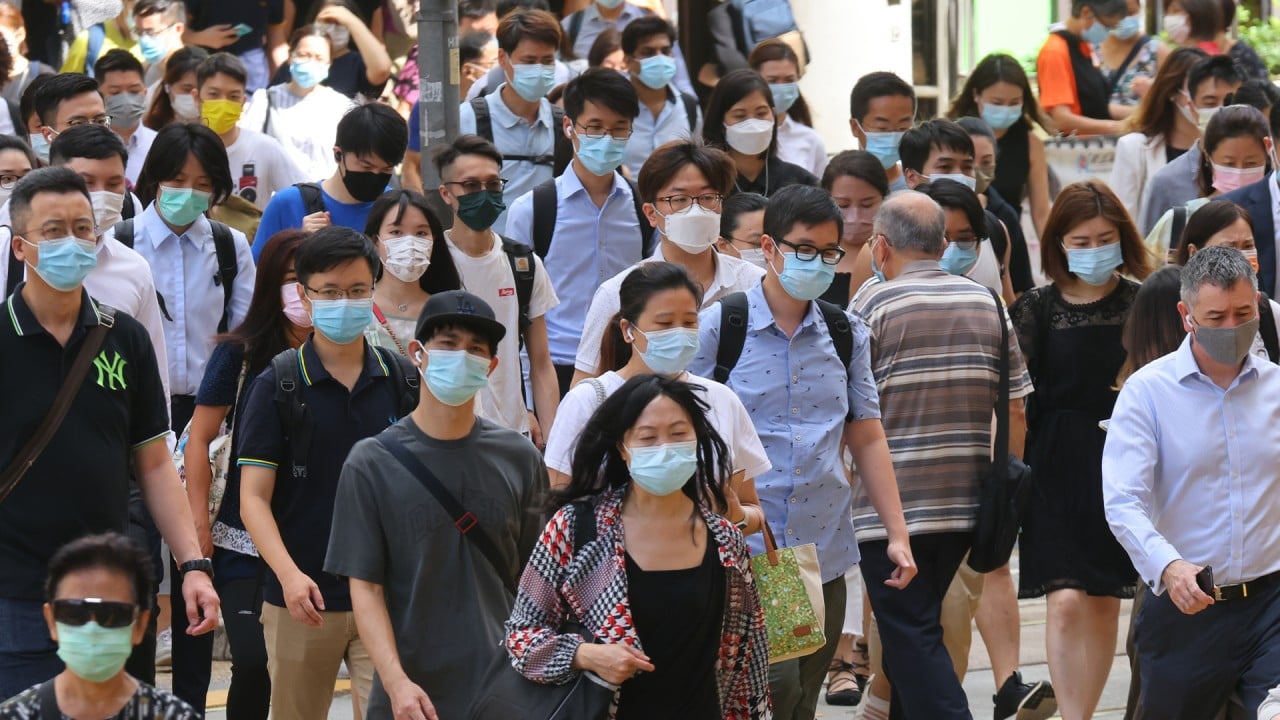
Coronavirus: ‘Hong Kong delays plan to ease rules on vaccinated arrivals, fears move will jeopardise cross-border travel with mainland China’
- The government was last week preparing to allow arrivals from high-risk places to enter the city, provided they had reliable proof of vaccination
- But officials have postponed the idea, which critics had warned could undermine talks with Beijing on resuming quarantine-free cross-border travel
“The chief executive thinks it is still very risky to allow vaccinated residents to return from these ‘high-risk’ places at the moment, as there were cases with variants from time to time,” one insider said. “These imported cases would also affect the border reopening plan with the mainland.”
Neither would the city move immediately ahead with a long-awaited travel bubble with Singapore. After pledging in June that the idea would be reviewed this month, authorities said the recent surge in cases in the country remained a concern and the plan would be revisited again in late August.
Hong Kong’s aggressive pandemic-control measures, while economically painful, have resulted in a six-week run without any local infections, and the government is regularly assessing countries in terms of the risk they pose as sources of imported cases.
The city currently bans arrivals from eight countries – Brazil, India, Indonesia, Nepal, Pakistan, the Philippines, South Africa and Britain. Travellers must first stay in another country for at least three weeks before being allowed to enter.
Talks with Guangdong on cross-border travel must start from scratch, leader admits
But as the Post reported last week, officials intended to allow in fully inoculated residents and workers from the eight nations provided their jab certification was reliable, as well as unvaccinated students stranded in Britain.
The proposal was sharply opposed by members of the pro-establishment camp and health experts, who warned the easing could undermine the city’s hard-fought success in controlling Covid-19. Lam’s decision reflected those same concerns, according to the insiders.
Reopening the border remained the government’s top focus, they said, although even the chief executive had recently admitted progress in talks with mainland officials remains slow.

04:55
Hong Kong, Australia’s goal to eliminate Covid-19 ‘not sustainable’, says infectious disease expert
A source from the Guangdong provincial government called Lam’s latest policy shift a “good decision” and said the city government would need to carefully monitor which countries opted to relax their pandemic controls.
Hong Kong could become a hole in the mainland’s tight defences against the virus if the border was fully opened while each side maintained different restrictions on overseas arrivals, the insider warned.
“If we have a daily quota system for people to enter Shenzhen directly [from Hong Kong], say 4,000, the question is how could we be sure these people are all safe [to us]?” the source said.
Singapore-Hong Kong travel bubble: late August review for delayed deal
Professor David Hui Shu-cheong, who advises the government on the pandemic, agreed Lam made the right call.
“We cannot assume that one is safe after vaccination,” Hui said. “Our border-control measures are not foolproof. The recent infections of the airport ground staff, porter and quarantine hotel cleaner showed that there were still loopholes.”
Easing rules for arrivals from high-risk countries could have exposed the city to a fresh wave of community outbreaks, he cautioned, adding reopening the mainland border was more important given so many Hongkongers had ties throughout the provinces.
Seven infections emerged on Tuesday, again all from overseas. They included arrivals from the United States, Japan, France, Iran and Bangladesh. All but one involved the L452R mutation linked to more transmissive variants of the disease, including the Delta one, while three had been fully vaccinated with BioNTech shots in Hong Kong.
A Post review has found that more than one in four Covid-19 patients in the city this month had been vaccinated. Two health experts said the figure raised concerns over whether the government’s decision to halve the quarantine period for fully vaccinated individuals with antibodies against the virus was wise.
Fewer than five people tested preliminary-positive.
Two of the latest cases triggered overnight lockdowns of residential buildings. They involved a 27-year-old resident who recently returned from the US and lived at Central’s CentrePoint, where checks were carried out overnight, and a 39-year-old man who came back from France and lived at Happy Valley’s Leon Court, which was locked down for testing on Tuesday.
Residents of Tang Kung Mansion at Kam Din Terrace in Taikoo Shing were also required to undergo testing after two children who stayed in the building after arriving from Saudi Arabia tested preliminary-positive.

07:07
The global spread of the highly contagious Delta variant of Covid-19
They self-isolated at home as they were exempted from quarantine. A source said they were children of a staff member of the Saudi Arabian consulate.
Separately, the government suspended Qatar Airways’s Doha to Hong Kong route until August 2 after four passengers aboard a July 18 flight were confirmed as infected. Flights in the opposite direction will continue normally.
The Department of Health, meanwhile, said it had received three reports of suspected myocarditis, or inflammation of the heart muscle, involving recipients of BioNTech shots who were aged 12 to 15 since the group was permitted to take the German-made jabs last month.
As of Monday, about 63,000 doses had been administered to residents in the age group.
The three affected minors – a 12-year-old and two 15-year-olds – complained of chest pain about two days after their second dose, and their condition was stable, the department said. The cases would be referred to a government expert panel for assessment.
The city’s tally of confirmed infections stood at 11,965, with 212 related deaths.



